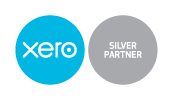Technological advances and changes in food science are presenting new opportunities but innovation is needed if these industry players are to prosper.
There is relatively little risk in trying a new flavour or version of a product. For retailers selling own-brand products, there is even less risk – they can test the product in store and if sales are poor, then they can simply remove the product from the shelf. However, the reality is it is more difficult to be a food or beverage manufacturer in today’s markets. It is a highly saturated market, with fierce competition. Moreover, retailers have driven down prices and squeezed low profit margins. Not to mention the average household spends a smaller proportion of their income on food than they did 20 years ago. Consumers have driven change that seek companies to source ingredients sustainably and ethically, however it has been difficult to pass this additional cost onto their consumer. In addition to this, the food and beverage industry are facing changes in food safety and regulatory requirements that pose further challenges.
Consumer Behaviour
We are seeing technology transform consumer behaviour and expectations. With most people connected to the internet through a smartphone or a tablet, it has enabled consumers to communicate and do business remotely, and now individuals demand food and beverages that match their changing lifestyle. Not only is there an upward trend of demand in healthier foods that promote physical and mental health, there is now a conscious assessment of the impact on your body holistically regarding what you are eating.
Regulation and Food Safety
The food and beverage industry continuously face consumer demand for minimally processed products containing natural ingredients – the “clean label” trend – however, they are still under pressure to maintain shelf life and comply with food safety standards. Companies must put in place a rigorous food safety strategy that evaluates the risk of harmful pathogen contamination (listeria and salmonella for example). There are also rising concerns about the traceability of ingredients and products, coupled by pressure on manufacturers to understand their entire supply chain, to prevent food fraud and unethical practices. It is also important to note that governments and legislative bodies regulate the industry. Take for example the UK’s proposed tax on sugar-sweetened beverages. It is imperative to understand the different international regulatory standards to ensure compliance.
Innovating Today for a Brighter Tomorrow
Today’s consumer has a very busy lifestyle and is often time poor. There is less time to prepare and eat three square meals a day. We are seeing innovative ways where food providers are catering to these changing needs and providing solutions. This can be anything from tasty and healthy home-delivered meal kits, retailers offering consumers the ability to order groceries while waiting for their train, with options to pick up or get delivered, or the rise of industry players such as Uber Eats, that essentially deliver some of the city’s best food options right to your door.

